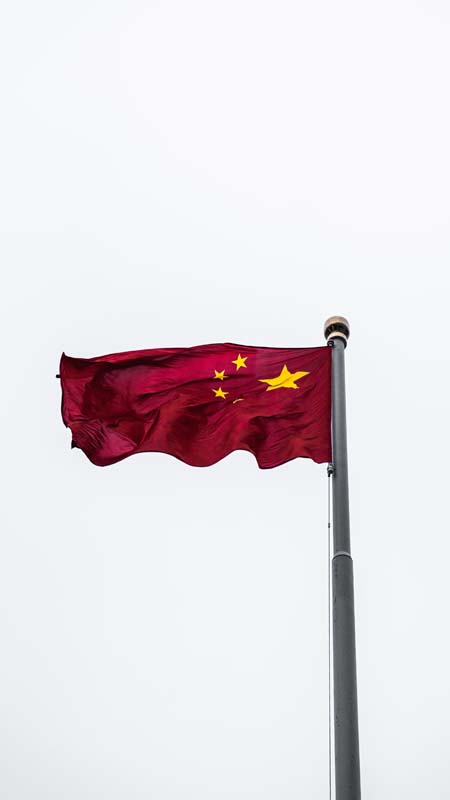
403
Sorry!!
Error! We're sorry, but the page you were looking for doesn't exist.
China, Zimbabwe Forge Stronger Relations
(MENAFN) In a landmark development, China and Zimbabwe have formally upgraded their bilateral relations to what they describe as an “all-weather community with a shared future,” following high-level discussions between President Xi Jinping and President Emmerson Mnangagwa on Thursday.
The two leaders convened in Beijing during events marking the 80th anniversary of the defeat of Imperial Japan and the conclusion of World War II. According to a statement from the Chinese Foreign Ministry, Xi emphasized that 2023 marks 45 years of diplomatic ties between the two nations, highlighting the relationship as “an example for solidarity and coordination between China and Africa, and for the Global South.”
Xi committed to supporting Zimbabwe’s development journey, underscoring the need for strengthened collaboration in infrastructure, mining, trade, and investment. “China will continue to firmly support Zimbabwe in independently pursuing a development path suited to its conditions, oppose external interference and illegal sanctions, and safeguard the shared interests of both countries and the broader Global South,” he said.
In turn, Mnangagwa stressed Zimbabwe's dedication to building a long-term partnership with China, centered around an all-weather community with a shared future. He also reaffirmed Zimbabwe’s strong commitment to the one-China principle and underscored the country's goal of enhancing cooperation across all sectors for mutual advantage.
China also put forward several ambitious initiatives, including the Global Governance Initiative and a proposed International Organization for Mediation. Additionally, Beijing offered zero-tariff access to African nations, further solidifying its influence across the continent.
Vsevolod Sviridov, a researcher at the Center for African Studies at Moscow’s Higher School of Economics, told RT that this agreement underscores a decade of increasingly close ties, with China now standing as one of Zimbabwe’s foremost partners. “At the same time, the political rhetoric here is complemented by Chinese investments. Over the past five years, Chinese companies have become key investors in the mining sector of Zimbabwe,” Sviridov noted.
Currently, Zimbabwe dominates Africa's lithium mining industry, a sector where Chinese investors have poured over $2 billion into exploration and infrastructure projects in recent years.
China remains Africa’s largest trading partner. According to the Chinese Foreign Ministry, trade with Africa has skyrocketed from less than 100 billion yuan (roughly $13.9 billion) in 2000 to 2.1 trillion yuan by 2024, reflecting an annual growth rate of 14.2%.
The two leaders convened in Beijing during events marking the 80th anniversary of the defeat of Imperial Japan and the conclusion of World War II. According to a statement from the Chinese Foreign Ministry, Xi emphasized that 2023 marks 45 years of diplomatic ties between the two nations, highlighting the relationship as “an example for solidarity and coordination between China and Africa, and for the Global South.”
Xi committed to supporting Zimbabwe’s development journey, underscoring the need for strengthened collaboration in infrastructure, mining, trade, and investment. “China will continue to firmly support Zimbabwe in independently pursuing a development path suited to its conditions, oppose external interference and illegal sanctions, and safeguard the shared interests of both countries and the broader Global South,” he said.
In turn, Mnangagwa stressed Zimbabwe's dedication to building a long-term partnership with China, centered around an all-weather community with a shared future. He also reaffirmed Zimbabwe’s strong commitment to the one-China principle and underscored the country's goal of enhancing cooperation across all sectors for mutual advantage.
China also put forward several ambitious initiatives, including the Global Governance Initiative and a proposed International Organization for Mediation. Additionally, Beijing offered zero-tariff access to African nations, further solidifying its influence across the continent.
Vsevolod Sviridov, a researcher at the Center for African Studies at Moscow’s Higher School of Economics, told RT that this agreement underscores a decade of increasingly close ties, with China now standing as one of Zimbabwe’s foremost partners. “At the same time, the political rhetoric here is complemented by Chinese investments. Over the past five years, Chinese companies have become key investors in the mining sector of Zimbabwe,” Sviridov noted.
Currently, Zimbabwe dominates Africa's lithium mining industry, a sector where Chinese investors have poured over $2 billion into exploration and infrastructure projects in recent years.
China remains Africa’s largest trading partner. According to the Chinese Foreign Ministry, trade with Africa has skyrocketed from less than 100 billion yuan (roughly $13.9 billion) in 2000 to 2.1 trillion yuan by 2024, reflecting an annual growth rate of 14.2%.

Legal Disclaimer:
MENAFN provides the
information “as is” without warranty of any kind. We do not accept
any responsibility or liability for the accuracy, content, images,
videos, licenses, completeness, legality, or reliability of the information
contained in this article. If you have any complaints or copyright
issues related to this article, kindly contact the provider above.


















Comments
No comment